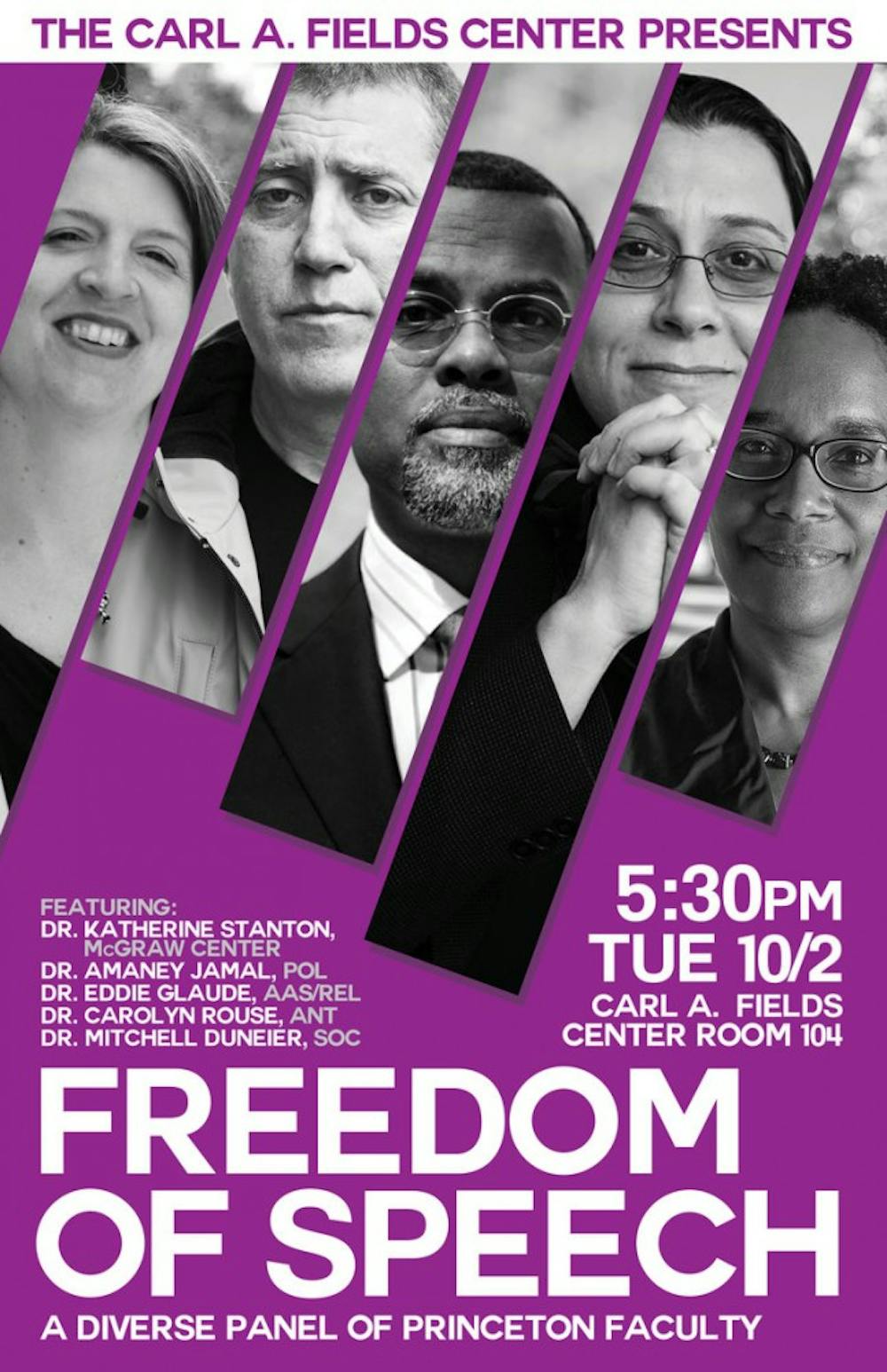A five-person panel at the Carl A. Fields Center for Equality and Cultural Understanding turned fiery on Tuesday night, as a discussion on campus free speech transformed into an appraisal of anthropology Professor Emeritus Lawrence Rosen’s cancelled course on cultural freedoms.
The panel — composed of sociology department chair Mitch Duneier, African American studies chair Eddie Glaude GS ’97, politics professor Amaney Jamal, anthropology department chair Carolyn Rouse, and Senior Associate Director of the McGraw Center Katherine Stanton — continued the discourse surrounding the university-wide pre-read, politics professor Keith Whittington’s “Speak Freely.”
After a brief introduction from Fields Center director Tennille Haynes, the panelists began with scripted remarks critiquing Whittington’s book and highlighting the flaws in his argument.
Some speakers, notably Jamal, a Muslim woman, criticized Whittington for not sufficiently addressing the perspectives of minorities, arguing that “free speech does not privilege [her] as an individual” or minorities in general, as they are not part of the “dominant hierarchy.” In practice, free speech merely enables those in power to say what they want and be protected from the consequences.
Others, such as Rouse, who spoke in a panel alongside Whittington earlier this year, said they do not believe that true free speech exists at all.
“Societies cannot maintain themselves if people can just say whatever is on their mind at any time,” she said. Still, we should strive for a society in which free speech from all perspectives — especially minorities — is tolerated.
As for university safe spaces, the panelists generally agreed that most pundits fundamentally do not understand their purpose, which is for minority students to “feel protected and understood” in an academic context that puts them at a disadvantage, as Jamal phrased it.
Glaude agreed, arguing that figures like Ann Coulter or Milo Yiannopoulos are hypocritical in their bashing of university safe spaces.

“They want to exact judgement without being judged,” Glaude said. “And when students reasonably call them ‘racist’ or ‘sexist’ or ‘homophobic,’ they cry foul.” With a smile, he asked the audience who “the real snowflakes” were.
The conversation soon shifted into a heated discussion about Rosen and his course, ANT 212: Cultural Freedoms — Hate Speech, Blasphemy, and Pornography. Rosen repeatedly used the N-word during a class exercise — a pedagogical decision with which Rouse, his superior in the department, generally disagreed — which caused such an outcry from the students that he canceled the course. Yet, Rouse also expressed sympathy for Rosen, who she believed was not accustomed to receiving backlash from his students. This drew criticism not only from some members of the audience, but also from one of her colleagues onstage.
“I’m pushing back on assigning blame to the victims, because that is a form of silencing,” Jamal said.
The disputes did not end there. A student challenged members of the panel about protecting conservative speech, which he believed was also under attack because of a perceived bias towards liberal speech at the University. In response, Glaude, a frequent guest on MSNBC’s “Morning Joe,” detailed his experiences disagreeing with his conservative colleagues on the show, and suggested that the real issue is disagreeing with certain arguments while still respecting them.

The event ran more than 30 minutes over time, as impassioned students took the microphone to respond not only to the panelists, but also to each other. The event was held at the Fields Center, beginning at 5:30 p.m. on Tuesday.








